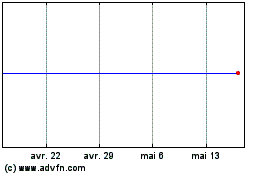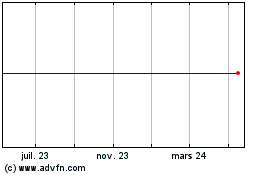BERLIN—A diplomatic rift sparked by Germany's handling of a
Turkish demonstration deepened on Monday, the latest sign of
worsening relations between Turkey and the European Union since the
failed Turkish coup in July.
The government in Ankara summoned a senior German diplomat
Monday afternoon to explain why the country's top court had barred
Turkish President Recep Tayyip Erdogan from addressing by video a
crowd of around 40,000 of his supporters in the German city of
Cologne the day before.
Citing the risk of unrest at the rally, German police had
decided not to let Mr. Erdogan appear via a live link. German
courts upheld the decision over the weekend after protest
organizers challenged it, prompting Turkey's EU Affairs Minister
Omer Celik to describe the ruling as "utter backsliding in freedom
of speech and democracy."
The growing tensions between two major players in Europe's
migrant crisis reflect the high stakes for the EU as it struggles
to strike a balance between condemning Mr. Erdogan's postcoup
crackdown and maintaining good relations with a critical partner in
grappling with terrorism and migration.
Turkish and German politicians have since traded accusations of
bias and blackmail via television and social media, displaying the
heightened mistrust between the countries over what Mr. Erdogan's
European critics see as autocratic repression in Turkey—and his
Turkish supporters see as unfair criticism of their country.
"This is the lowest point I've ever seen in German-Turkish
relations," said Burak Copur, a political scientist and scholar of
German-Turkish relations at the University of Duisburg-Essen. "And
therefore we are also heading towards a clash between the EU and
Turkey."
The stakes are particularly high for German Chancellor Angela
Merkel, who has sought to avoid riling Mr. Erdogan, her ally in
Berlin's efforts to curb the recent inflow of migrants.
After two terror attacks committed by asylum seekers in the past
two weeks, Ms. Merkel faces new pressure at home to contain the
flow of migrants to Germany. Her open-door migrant policy allowed
over one million migrants to come to here last year and a March
deal reached with Turkey to take back migrants who cross into
Europe illegally from Turkish shores has contributed to a
significant drop in the number of migrants crossing into
Europe.
Politicians in Turkey have threatened to cancel the pact unless
Europe delivers promised concessions soon, especially visa-free
travel in Europe for Turkish citizens. But EU officials say Turkey
must first meet criteria that include addressing the treatment of
political opponents, which the crackdown is placing in
question.
"Under no circumstance should Europe let itself be blackmailed,"
Germany's Deputy Chancellor Sigmar Gabriel told reporters on
Monday, after Turkey's Foreign Minister Mevlut Cavusoglu told a
German newspaper over the weekend that visa-free travel must be
granted by October if cooperation on migration is to continue.
Turkey's Mr. Celik criticized the German judicial ban on Mr.
Erdogan's video address in a series of Twitter posts, turning
around accusations of censorship and curbs on other civil liberties
that German politicians have leveled at Mr. Erdogan. It is "such a
shame to see that [the] EU fails in upholding democracy and showing
solidarity with a candidate country in the face of a coup threat,"
he wrote.
A senior Turkish official said Turkey was still committed to
working with Europe on migration and other issues but expected its
European partners to hold up their end of the deal.
In Brussels, EU officials are concerned that the events in
Turkey could harm relations so much that last year's migration
crisis could reignite. More than a million refugees and other
migrants arrived in Europe in 2015, mostly via the Middle East,
sparking a political crisis in the EU that has been contained
recently mostly with Turkey's help.
The average number of migrants crossing the Aegean Sea from
Turkey to Greece has dropped to 89 a day since the EU-Turkey
migration deal was signed in March, compared with daily average
arrivals of about 1,740 in the months before the agreement,
according to the European Commission.
Commission President Jean-Claude Juncker warned over the weekend
that the migration deal could fall apart. He expressed concern
about "torture and arbitrary detention" of alleged coup plotters
and political dissidents, which he said were just as big a problem
for EU-Turkey relations as some Turkish politicians' talk of
reintroducing the death penalty for coup participants.
In France, the latest political turmoil has only reinforced
doubts about whether Turkey should get visa-free travel, a French
official said.
In Germany, home to the largest Turkish diaspora, thousands of
Turks and Germans of Turkish descent have marched in support of Mr.
Erdogan since the coup attempt.
Demonstrations have been mostly peaceful, but a series of
violent incidents in Germany against critics of Mr. Erdogan have
raised German officials' fears that Turkey's political troubles
could spill over into their country.
The two countries have had a series of diplomatic rows in recent
months. In April, the German chancellor had to weigh relations with
Ankara and press freedoms in Germany when Turkey pursued the
prosecution of a prominent German comedian for reciting a crude
poem mocking the president. Ms. Merkel was heavily criticized at
home for allowing a criminal investigation into the comedian's
performance to move forward. In June, Germany's parliament approved
a motion calling the killing of more than a million Armenians by
Ottoman Turks a genocide, angering Turkey yet again.
"Turkey has been an important and good partner for Germany and
Europe for centuries," Martin Schä fer, a spokesman for the German
Foreign Ministry, said Monday. "We have had bumpy phases now and
again but also phases that were extraordinarily good. Currently, we
are in a somewhat bumpy phase."
Valentina Pop in Brussels and Emre Peker in Istanbul
Write to Ruth Bender at Ruth.Bender@wsj.com
(END) Dow Jones Newswires
August 01, 2016 19:15 ET (23:15 GMT)
Copyright (c) 2016 Dow Jones & Company, Inc.
Twitter (NYSE:TWTR)
Graphique Historique de l'Action
De Juin 2024 à Juil 2024

Twitter (NYSE:TWTR)
Graphique Historique de l'Action
De Juil 2023 à Juil 2024
